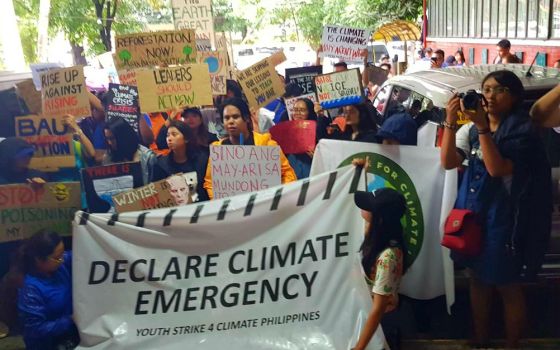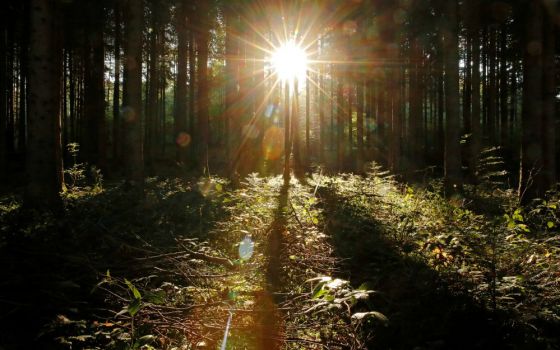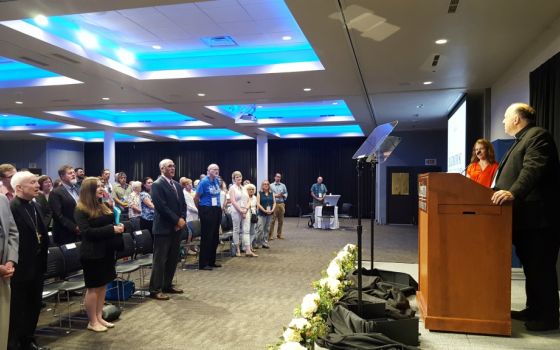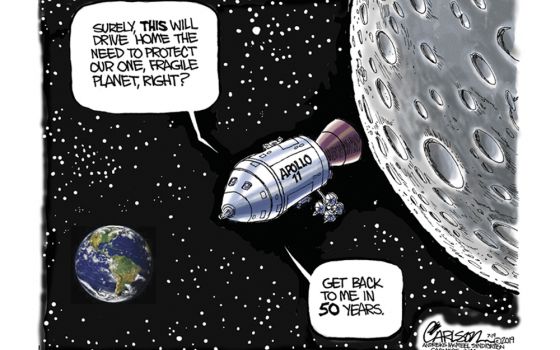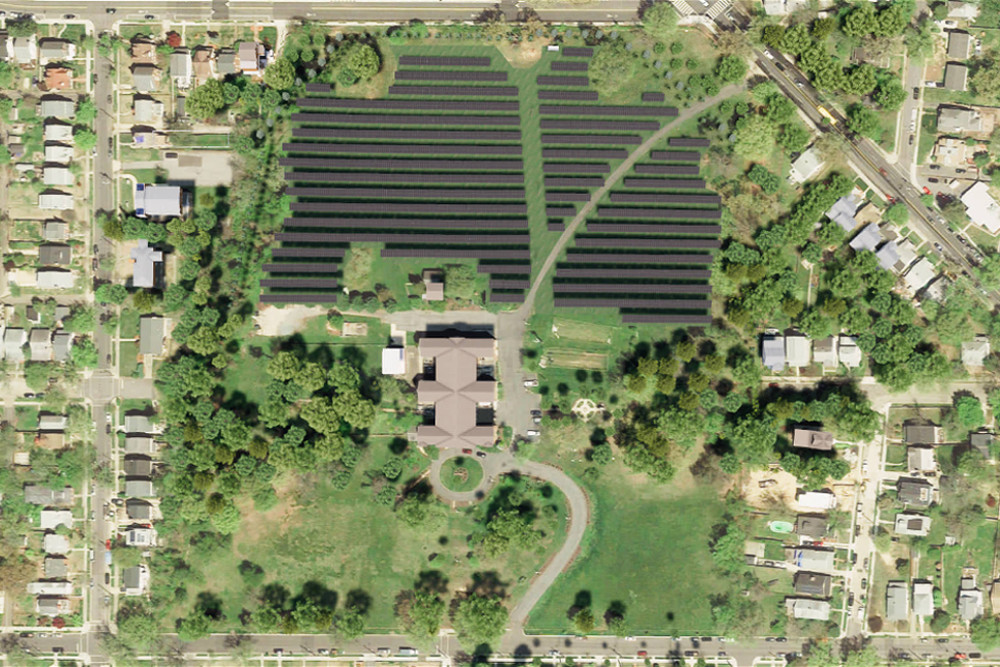
Catholic Charities of the Washington Archdiocese is building a 2-megawatt solar array, shown in this rendering, that will consist of more than 5,000 solar panels and be located on land it owns in northeast Washington D.C. (Catholic Energies)
The largest ground-based solar array to date in the nation's capital is being built by the Catholic Church.
Catholic Charities of the Washington Archdiocese announced plans July 10 for a 2-megawatt solar array consisting of 5,000-plus panels that will provide enough renewable power to offset the energy needs of 12 of its buildings throughout the district.
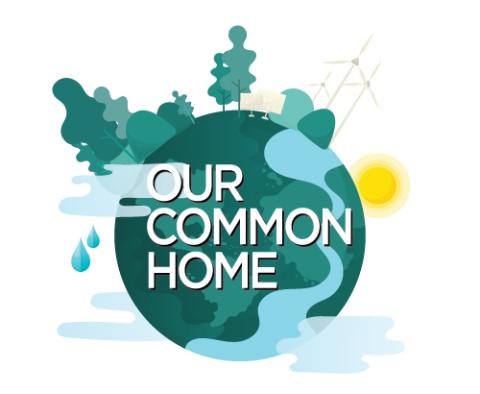
(NCR/Freepik)
Once constructed, it would be the largest ground-based solar project approved in the District of Columbia, project partners said in a press release.
The solar project is the most ambitious so far developed through Catholic Energies, a program of Catholic Climate Covenant to assist church institutions big and small across the country install solar panels or energy efficiency measures — all at no cost to the Catholic organizations.
Catholic Energies will manage the solar project, which will be constructed by IGS Solar and Maryland-based Solar Energy Services Inc., which will also operate the system. IGS Solar, which works in 30 states, will own the panels and also sell renewable energy certificates, which allow consumers to certify their electricity came from renewable sources.
The cost of the project for its investors has not been disclosed, but Catholic Charities D.C. told NCR it estimates hundreds of thousands of dollars in annual energy cost savings.
The array is projected to generate 2.7 million kilowatt-hours per year, enough to power roughly 260 homes. The project is expected to offset an estimated 3,400 tons of carbon dioxide emissions annually, roughly what is produced from the energy use of nearly 370 homes in a year.
"We are proud to have this opportunity to take up Pope Francis' call to action to protect our environment," Msgr. John Enzler, president and CEO of Catholic Charities D.C., said in a statement. "Climate change is an urgent issue, and we are pleased that this project supports D.C.'s Sustainable D.C. 2.0 initiative by reducing the consumption of fossil fuels and generating solar power."
In April, the District of Columbia released its Sustainable D.C. 2.0 plan that aims to make the nation's capital also its most sustainable city by 2032, in part by increasing renewable energy use by 50% and cutting citywide energy use by the same amount.
The Catholic Charities solar power system will sit upon five acres in Northeast D.C. near the Gift of Peace Home convent and nursing home of the Missionaries of Charity. Plans include planting at the base of the panels a meadow of 650,000 nectar-bearing flowering plants to provide a habitat for bees, butterflies and other local pollinating species.
Once completed, the solar array will be the second large-scale environmental infrastructure project within the Washington Archdiocese in recent months. In May 2018, a bioretention rain garden was created in Mount Olive Cemetery to reduce pollutants from water runoff.
It was a solar-friendly market in D.C. that led Catholic Energies to reach out to the region's Catholic Charities. Initially, discussions focused on rooftop projects before Catholic Charities proposed the eventual project site as having the capacity for something bigger.
Dan Misleh, executive director of Catholic Climate Covenant, said reduced energy costs can allow ministries like Catholic Charities — the D.C. metro's largest social services agency — to free up funds for core mission activities, while also lowering their carbon footprint and living out the church's calling to care for God's creation.
"If you're Catholic Charities, you can feed more hungry people, you can shelter more people who are homeless, you can help with pregnant women who are searching for a way to carry their baby to term. There's all kinds of things that can be done with that savings, rather than paying utility bills," he said.
Two weeks ago, Catholic Climate Covenant gathered 200-plus ministers and church leaders on environmental issues for a three-day conference at Creighton University to discuss ways to more fully embed creation care into the life of the U.S. church.
Advertisement
One particular focus was energy management.
The conversations dug into the details of how to go about starting, financing and sustaining energy projects, and what resources they could develop to help Catholic groups in their pursuit of using less and cleaner energy. Ideas like lists of best practices and available funding sources came up, as did "twinning" parishes or organizations to help those more financially strained.
Ultimately, cost savings represent the strongest motivators, participants said, but offering a vision that connects to the church's mission as well as examples to share are important, too, especially in making the case to decision-makers.
Right now, Catholic Energies has roughly a dozen projects representing an estimated $30 million in its pipeline at various stages, Misleh said. He hopes the Catholic Charities project, as well as a Virginia parish that recently converted to 100% solar energy, will signal to more and more Catholic organizations that energy projects are possible.
"We can develop the project, we can help you select solar installers, we can even bring the financing for you to the project," he said. "So it really doesn't cost the entity anything, except a little bit of their time."
[Brian Roewe is an NCR staff writer. His email address is broewe@ncronline.org. Follow him on Twitter: @BrianRoewe.]




